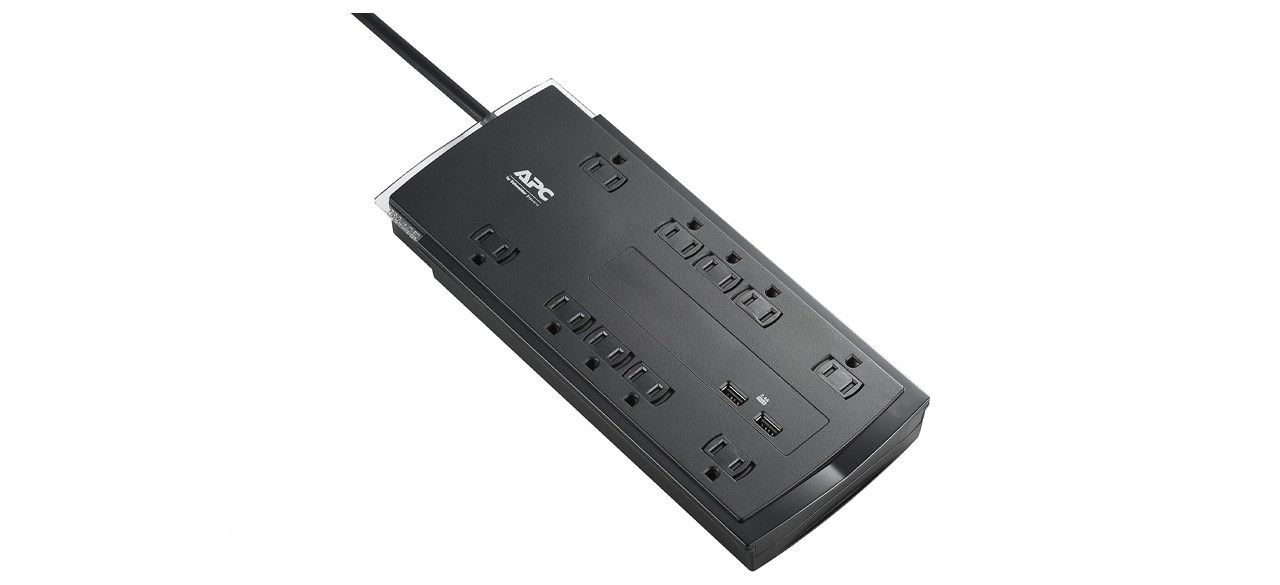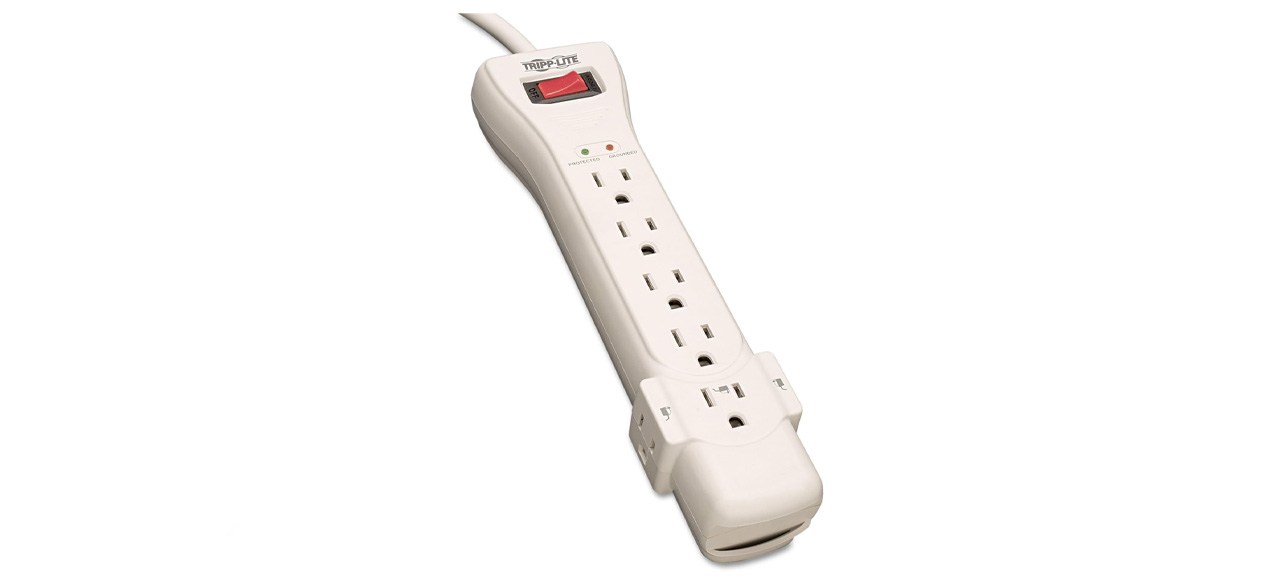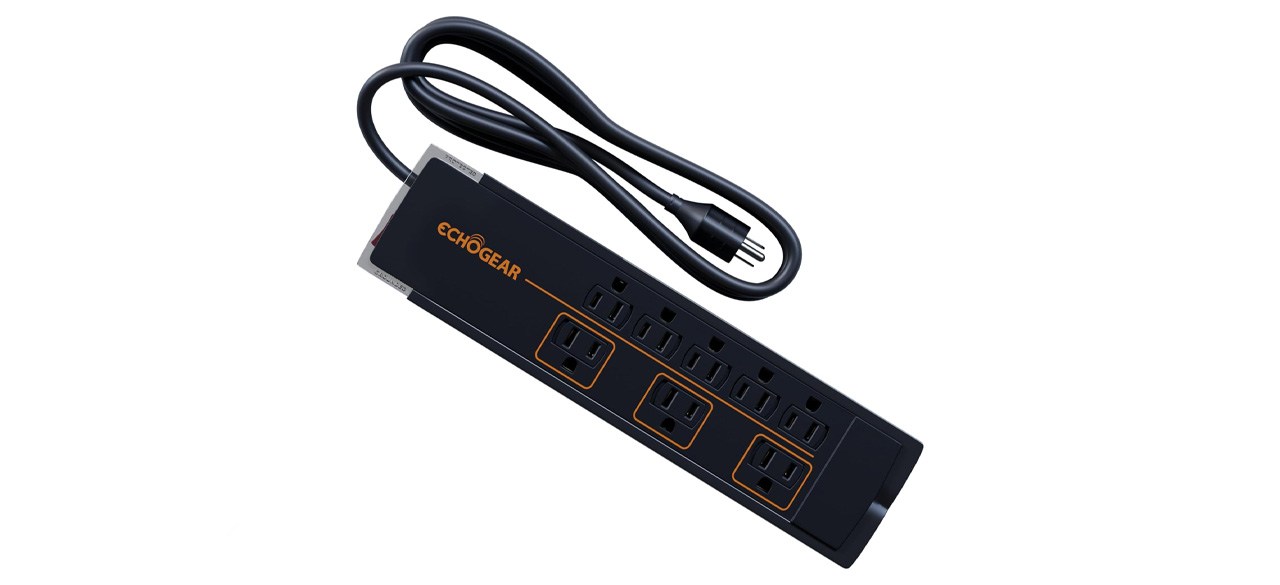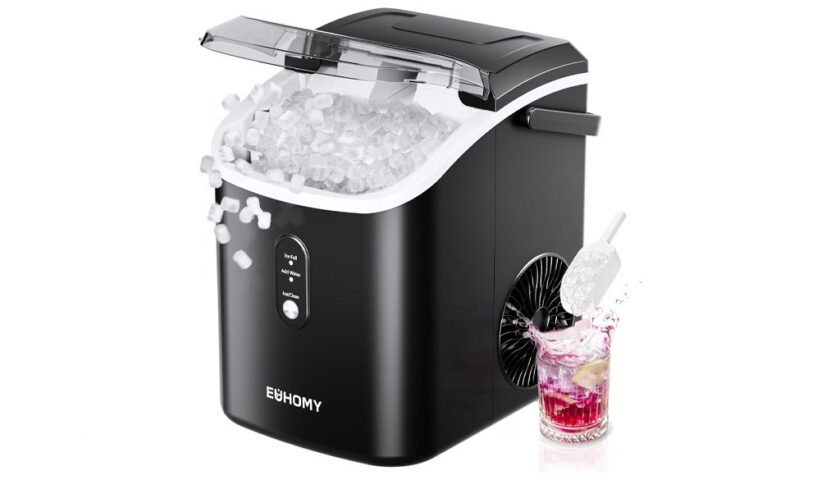Which surge protector is best?
Most people have numerous electronic devices plugged in every room in their house. TVs, gaming consoles, computers and appliances are expensive and must be protected. A quality surge protector acts as a line of defense from electrical surges that can fry your electronics.
If you’re looking for a quality surge protector, the APC Surge Protector Power Strip is an excellent choice, offering both AC and USB outlets.
What to know before you buy a surge protector
How surge protectors work
Many people buy surge protectors because they let you plug multiple devices into a single outlet. Still, the most critical surge protector function is protecting your electronics from spikes in voltage. Most devices aren’t built to withstand electrical surges on their own. Surge protectors divert the extra electricity to the outlet’s grounding wire when the voltage spikes above an acceptable level.
How surges happen
The most common causes of electrical surges are high-power devices such as air conditioners, refrigerators and dehumidifiers. These require large amounts of energy to turn on, which can upset the voltage flow. Faulty wiring is another common source of electrical surges.
Although less common, lightning can cause surges. When lightning strikes near power lines, the electrical energy can boost voltage significantly.
Power strip vs. surge protector
Power strips look identical to surge protectors, but they don’t offer protection against voltage surges. It’s essential to read the product’s description, as most surge protectors list their joule rating in the description.
Surge protector safety
Surge protectors can be dangerous if misused. Plug your surge protector directly into an outlet and never into an extension cord or another surge protector. In most cases, manufacturers won’t honor your warranty if they determine you’ve misused your surge protector.
What to look for in a quality surge protector
Joule rating
Joule ratings indicate how much energy the surge protector can absorb before failing. Higher joule ratings mean the device will protect your electronics against larger surges. For expensive electronics, choose a surge protector with at least 2,200 joules of protection.
Clamping voltage
Clamping voltage is the amount of “over-voltage” before the device begins to work. The three most common levels of protection are 330 volts, 400 volts and 500 volts. Lower clamping voltages are better; in most cases, anything with a clamping voltage over 400 won’t protect your electronics.
Outlet variety
Some surge protectors feature USB outlets that eliminate the need for power blocks. Older and cheaper ones typically only feature AC outlets. Choosing a model with various outlets ensures you get more functionality from your purchase.
Size
Many of the most effective surge protectors are large. Size may not be an issue if you have space; thinner models are worth considering if you’re low on space.
How much you can expect to spend on a surge protector
You can buy cheap surge protectors with low joule ratings for less than $15. If you want a unit that adequately protects your electronics, you’ll likely spend between $20-$40.
Surge protector FAQ
Do I need a surge protector?
A. Surge protectors are excellent safety devices when used correctly. Simple devices such as lamps and fans don’t need a surge protector. On the other hand, expensive devices with numerous electrical components, such as computers, TVs and gaming consoles, should be plugged into a surge protector. For the best outcome, you should expect to change your surge protector every three to five years.
Do surge protectors use a lot of electricity?
A. Surge protectors don’t drain any additional energy. They simply monitor the energy passing through them and divert it when needed.
Do phone chargers have surge protection?
A. Phone chargers don’t feature built-in surge protection. You’ll need to buy a surge protector separately to protect your phone from surges. If you plan on plugging your phone into a surge protector, consider buying one with USB outlets.
Should I turn off my surge protector at night?
A. Regularly turning off your surge protector will extend its life. They don’t protect against lightning strikes, so it’s best to turn them off at night if you expect a storm.
What’s the best surge protector to buy?
Top surge protector
APC Surge Protector Power Strip
What you need to know: This features a massive joule rating of 4,320 joules.
What you’ll love: It has 10 AC outlets and two USB outlets. The 6-foot power cord makes it easier to place this where you want it. Although the product description of the clamping voltage is unclear, most buyers suggest it’s between 330 and 400 volts.
What you should consider: Though it offers a lot of outlets, this model is bulky.
Top surge protector for the money
Tripp Lite 7-Outlet Surge Protector
What you need to know: This surge protector is available in numerous configurations with an adequate joule rating.
What you’ll love: It has 2,160 joules of protection and seven AC outlets. LEDs tell you when it is properly grounded and protected. The narrow design is ideal for those without a ton of space.
What you should consider: This model doesn’t come with USB outlets.
Worth checking out
What you need to know: This model offers a slim design and eight AC outlets.
What you’ll love: It has 3,420 joules of surge protection. Three of the outlets have extra space between them for larger plugs. The clamping voltage is 330-400. It features a durable design.
What you should consider: There are several reports of people receiving defective units.
Prices listed reflect time and date of publication and are subject to change.
Check out our Daily Deals for the best products at the best prices and sign up here to receive the BestReviews weekly newsletter full of shopping inspo and sales.
BestReviews spends thousands of hours researching, analyzing and testing products to recommend the best picks for most consumers. BestReviews and its newspaper partners may earn a commission if you purchase a product through one of our links.
Distributed by Tribune Content Agency, LLC.







